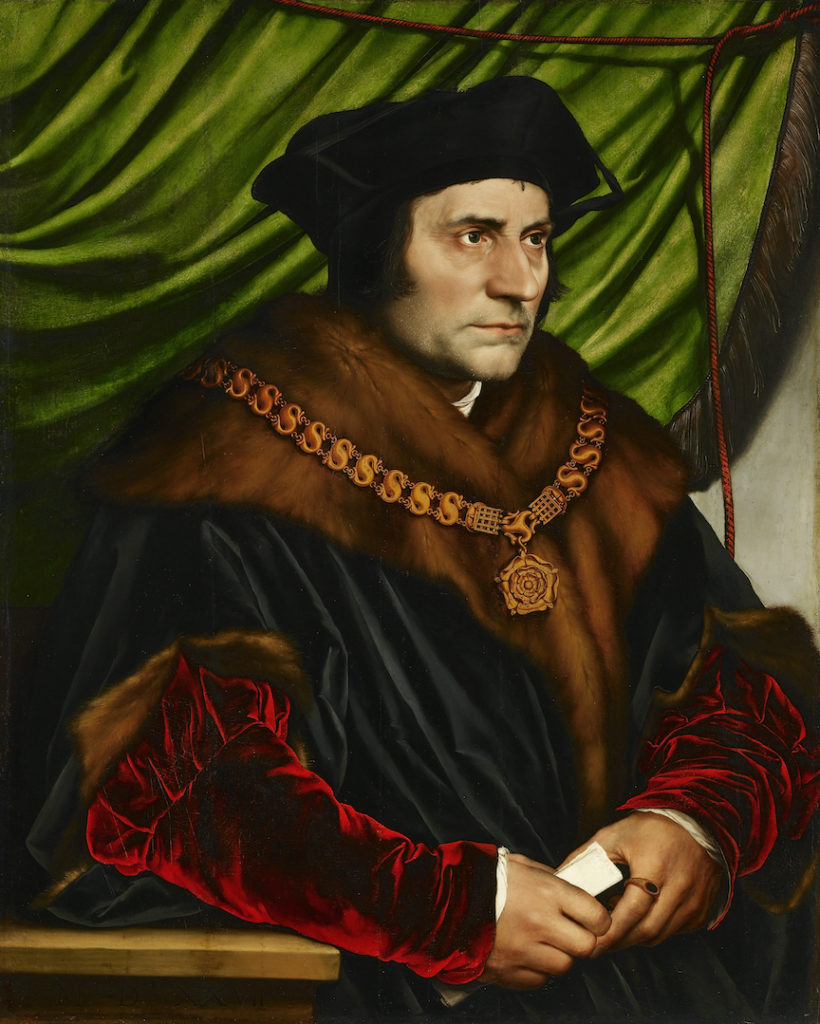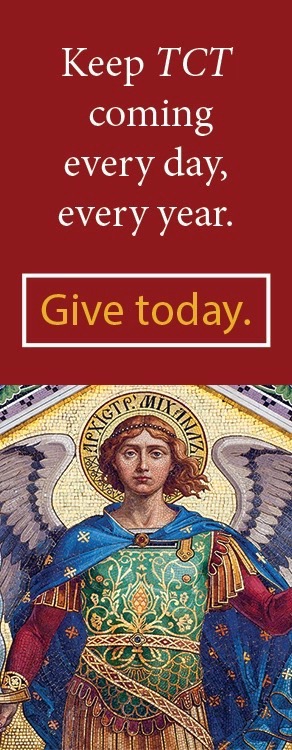People often ask me: What can I do about the current state of the Church and the world? The question is urgent. The situation, dire. Even Pope Francis, who personally and through his appointments tries to avoid conflicts, has called the Church a “field hospital.” A field hospital only makes sense where there’s a battle. And a battle where combatants are seriously wounded, and need to be treated. Which requires resources, supply lines, coordinated efforts, multiple institutions, and – above all – healing knowledge. So what we need to do now is, basically, everything. All at once. Wherever we find ourselves.
In many ways, this is nothing new. Our current situation is – more obviously than usual, to be sure – a clash between the City of God and the City of Man. And in its way is actually helpful. It’s brought to light, for anyone with eyes to see, a battle that is always going on, has now spread rapidly, and allowed enemy forces to gain significant territory without a proper counteroffensive. No more.
Besides, the experiments in matters political, sexual, cultural, ecclesial are self-destructing before our very eyes. They’ll take a lot more of us with them before we can rebuild. Much that we once thought unshakeable will be shaken to the core. Which is why we have to hold such territory as we still control and plan on what to do as new opportunities present themselves.
And one of the first things necessary is not to let propaganda by the other side define the struggle or set the rules of engagement.
For example, the New York Times recently ran an article worrying that Catholic hospitals – which provide around one in seven hospital beds in America, over 30 percent of acute care in 10 states – were actually following Catholic moral teaching on abortion and other procedures, making it harder to get them in some areas. Actually caring for large swaths of the people, however, means nothing if the sacred right to dead babies isn’t part of it.
We’ve got similar problems within the Church. As Father Peter Stravinskas asked on this page a few weeks ago, “Where are the Catholic Schools in a Synodal Church?” After a careful reading of the fifteen “regional reports” of the “diocesan phase” of the Synod on Synodality, he found much of the usual talk about being “inclusive” – especially of women, minorities, LGBT+, the divorced and remarried. There was very little about, and very little emphasis on, Catholic schools, which for all their own problems, educate millions of American students and have a huge impact on vocations and Mass attendance after students become adults.
You can’t win battles if your own troops aren’t trained – or retained. Bishops and official institutions are important, to be sure. But independent, unofficial, privately supported Catholic voices are crucial to the Faith in our circumstances, and will make a massive difference to its survival into the future.
Which is one of many reasons that I ask for your support this morning as we begin our end-of-year fund drive for The Catholic Thing.

Our charism at TCT has been, is, and will always be brevity (no more than 1000 words every morning, a frustration for some of our more loquacious contributors, but a mercy for all of us who already have too much to read). Our writers contribute longer pieces to scholarly and popular journals, write books, appear on radio and television, speak at conferences – and often distill some of that other work in these pages. Several have filled important posts in the Church, politics, and business – and know whereof they speak.
Our format works. And not only here in America. We have 50,000 subscribers mostly from the English-speaking world. But as you may see by clicking in the upper-right-hand corner of this page, many of our articles are translated by partner publications abroad into French, Spanish, Portuguese, Italian, Slovak, and (most recently) German. We think we’ve passed one of the most important tests of any publication in these days, when there are so many online sites seeking your attention – the market test.
In the coming year, we’ll be facing several large challenges in the Church and the World – ad intra (inside) and ad extra(outside) the Faith to use the traditional Latin categories.
We can see that in American politics, there are going to be ongoing struggles over abortion in post-Roe America, to say nothing of religious liberty, parental rights, and much more.
And inside the Church Herself, the whole gamut of uncertainties about moral matters and even defined doctrines will be very much in play during the “synodal process,” culminating in the two Synods on Synodality (October 2023 and 2024). We’ve been in Rome to bring you daily reports on special events such as these in the past, and we’ll be there again, Deo volente, in the coming years.
And even as we’re involved in these public and private battles, we need to be deepening our knowledge of what it means to be Catholic, which is why we’ve created TCT Courses on some of the greatest Catholic thinkers . We’ve now had thousands of students reading with us all three parts of Dante’s Divine Comedy, St. Augustine’s Confessions and City of God (currently underway), Fr. Gerald Murray on his book about current crises in the Church and how to resolve them, along with several courses now offered in co-operation with the International Catholic University by famed teachers such as Notre Dame’s Ralph McInerny, and the late Fr. Joseph Koterski.
And in 2023, we’ll be offering entirely new courses on St. Thomas More’s Utopia, and much more. (Please check and keep checking back on course offerings by clicking the TCT Courses box above or by going here.)
If you’re a regular reader, you already know why all this activity is urgent. But we can literally do none of it without your support. So please, just click here, follow the simple instructions, and make your contribution to the ongoing work of The Catholic Thing.
*Image: Sir Thomas More by Hans Holbein the Younger, 1527 [Frick Collection, New York]
You may also enjoy some of our most popular columns from the last dozen years:
David G. Bonagura Jr.’s Why Catholicism Is the True Religion
Michael Foley’s The Eucharist & Cannibalism















